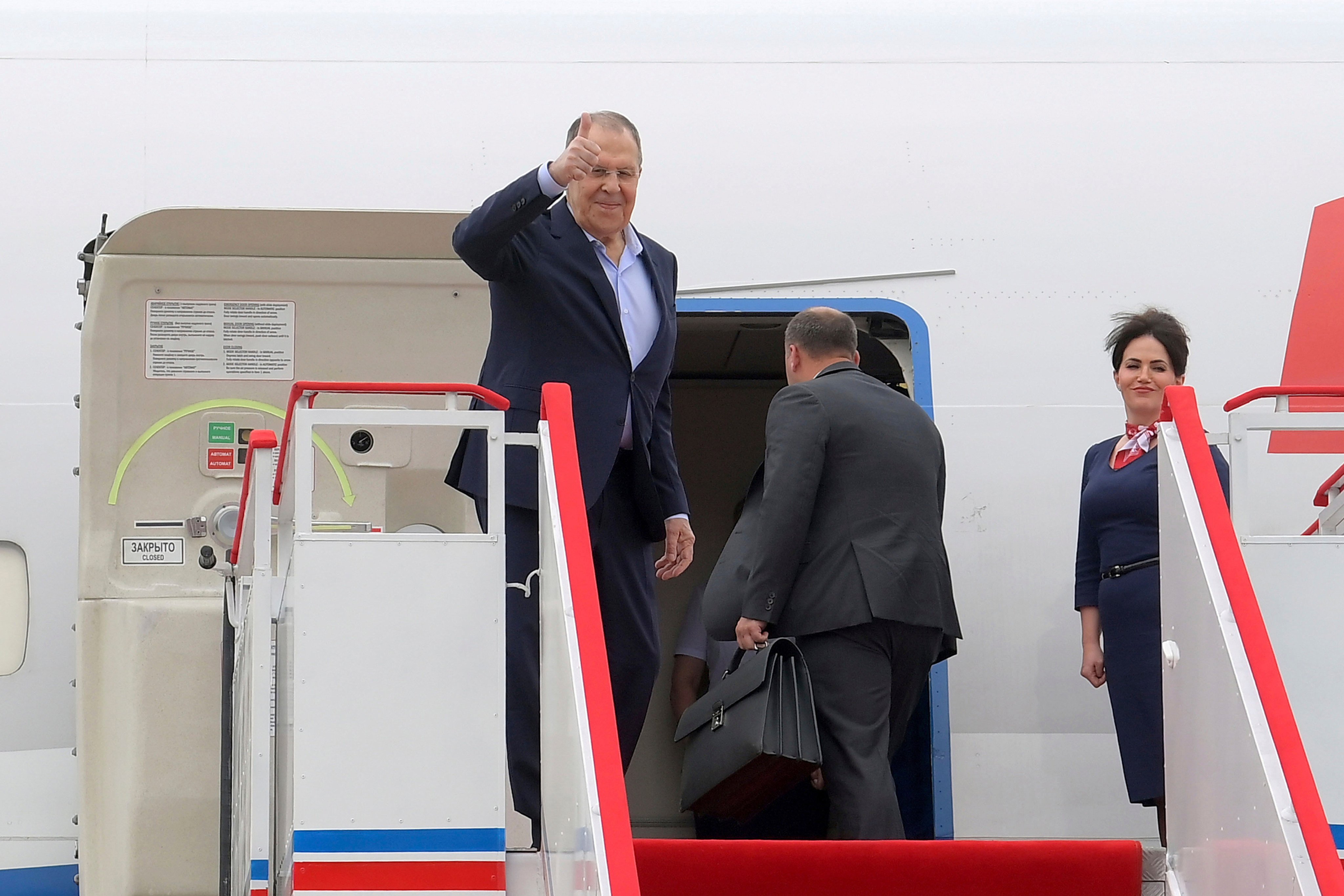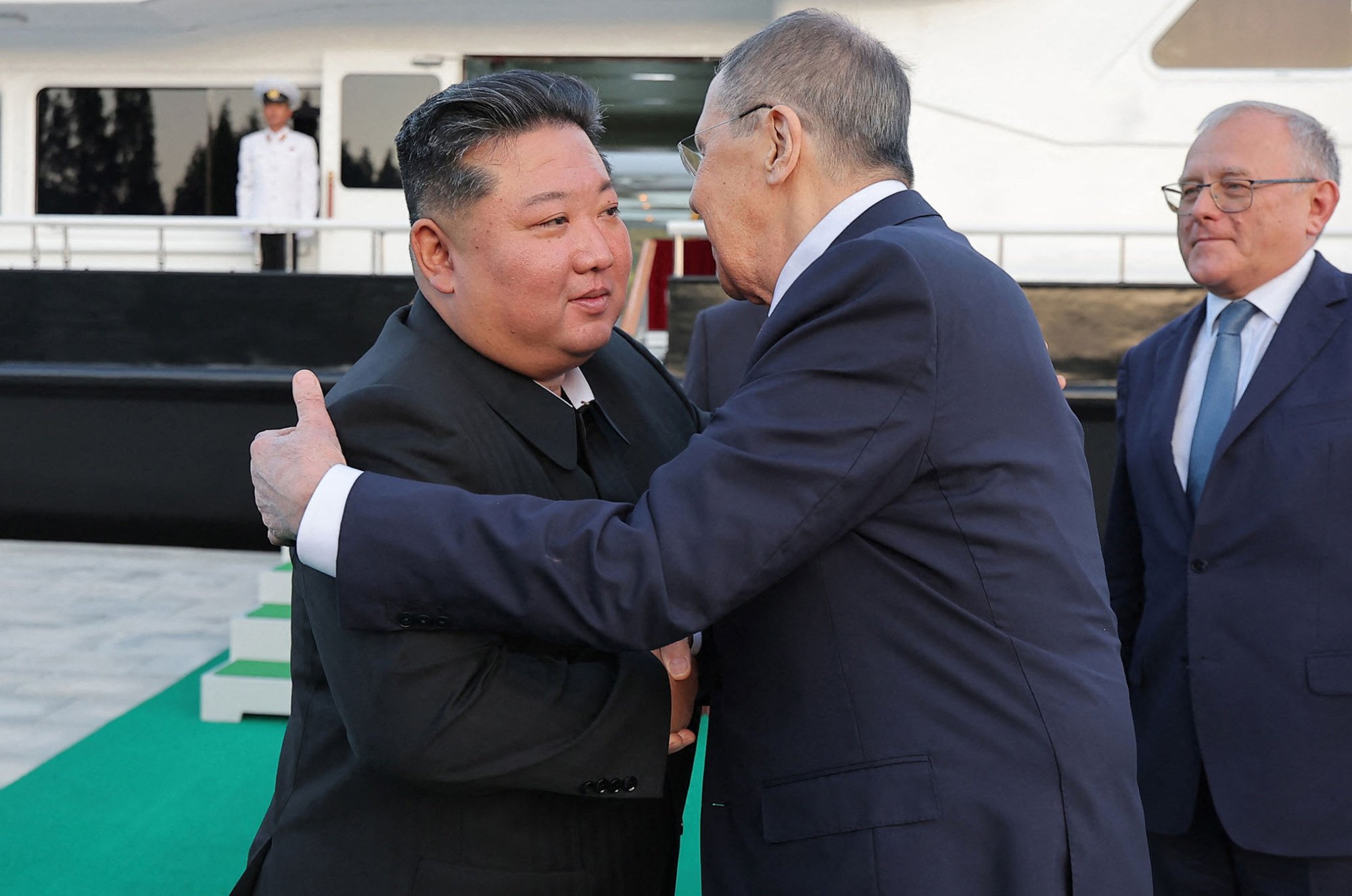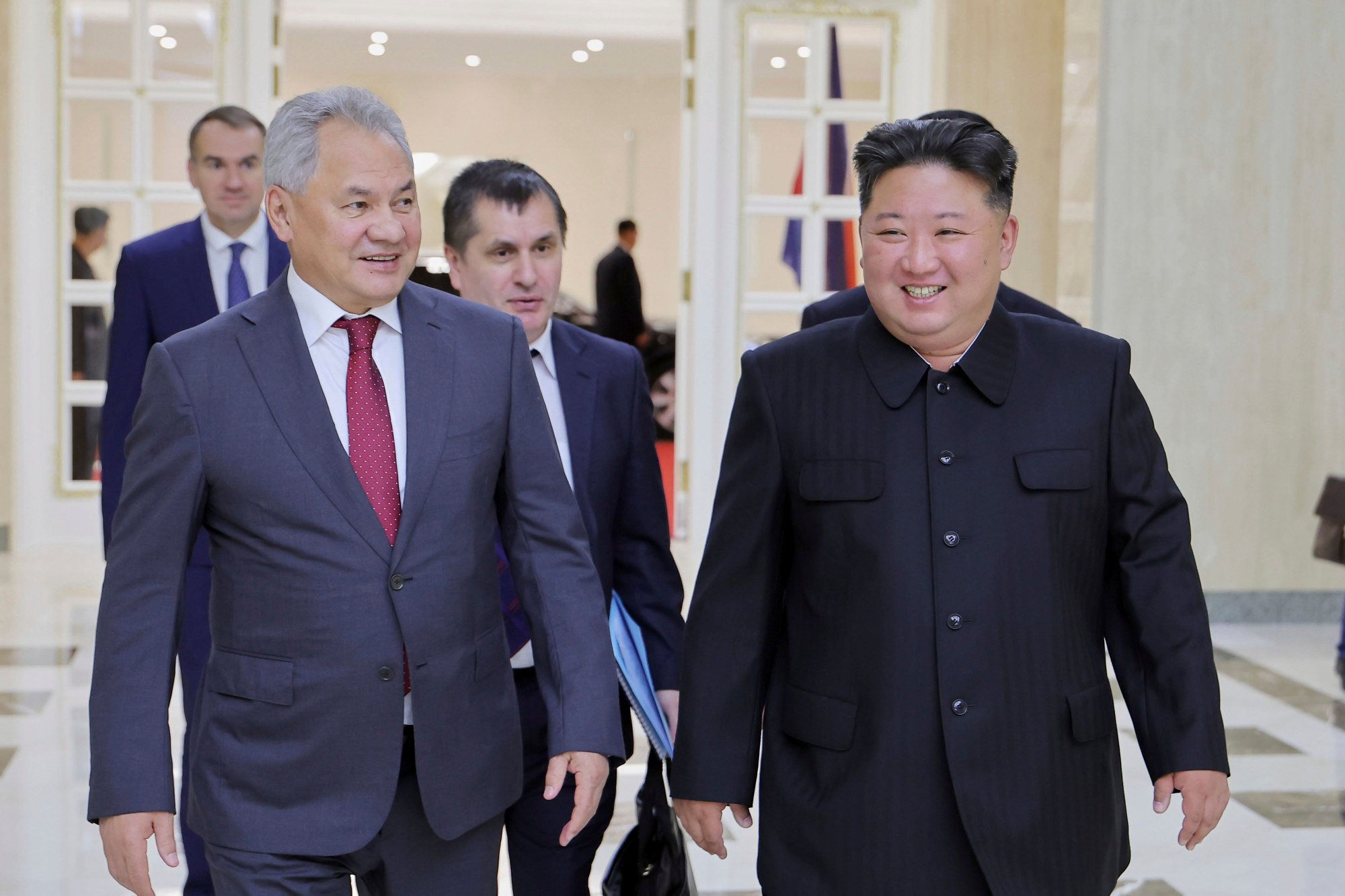Lavrov in Pyongyang: a sign Russia urgently needs more North Korean troops?
Moscow’s top diplomat capped a flurry of high-level visits to Pyongyang in search of more ‘allies willing to bleed’, analysts say

Russia’s appeals to North Korea for military manpower have taken on new urgency with Sergey Lavrov’s weekend trip to Pyongyang.
The Russian foreign minister’s visit, his first to the North Korean capital since 2009, signalled Moscow’s growing reliance on its neighbour for troops and engineering support, analysts say – suggesting that Kim Jong-un’s regime could now send more soldiers, “in more direct combat roles”, to shore up the Kremlin’s war effort in Ukraine.
“Russia may also count on North Korean combat engineers in a potential Dnieper River-crossing operation to seize Kherson,” Doo Jin-ho, a senior researcher at the Korea Research Institute for National Security, told This Week in Asia.
At a press conference on Saturday, Lavrov made no secret that Moscow would welcome further North Korean military involvement in the war, saying that if Pyongyang offered to send more troops, Russia would have “no reasons to decline this sincere act of solidarity”.

He added that Pyongyang would “determine the forms in which” the two sides implemented the strategic defence treaty they signed last year, according to a Russian foreign ministry statement.
North Korea dispatched an estimated 11,000 soldiers to Russia in November to help repel a Ukrainian incursion into the Kursk region, with some 4,000 reportedly killed or wounded.
According to Doo, “many North Korean special forces” are now reportedly conducting joint operations with Russian troops in Kursk, while others are stationed along Ukraine’s northeastern border between Bryansk and Belgorod.
On Saturday, North Korean leader Kim pledged “unconditional” support for Russia’s actions in Ukraine, as well as “all the measures taken by the Russian leadership”, Pyongyang’s state-run Korean Central News Agency (KCNA) reported.
In diplomatic discussions, it’s very rare to hear terms like ‘unconditional support’Lim Eul-chul, professor specialising in North Korean studies
“In diplomatic discussions, it’s very rare to hear terms like ‘unconditional support’,” Professor Lim Eul-chul of Kyungnam University’s Institute for Far Eastern Studies told This Week in Asia.
“This suggests that the possibility of North Korea dispatching more troops – and in more direct combat roles – could be explored as part of its support for Russia.”
The two countries, both under heavy international sanctions, formalised their alliance with the signing of the Treaty on Comprehensive Strategic Partnership during Kim and President Vladimir Putin’s summit in June last year. In remarks carried by KCNA, Kim said at the weekend that the two “share the same views on all strategic issues in conformity with the level of [their] alliance”.
Lavrov also used his Pyongyang visit to defend North Korea’s nuclear ambitions, saying that Russia “understands” Pyongyang’s motives and citing Pyongyang’s deterrent as the reason “no serious actor contemplates a military strike against the DPRK today” – using the abbreviated form of the country’s official name.
He condemned what he called the “ongoing military build-up around the Korean peninsula, driven by the United States in coordination with South Korea and Japan”, citing recent Israeli and US strikes on Iran and warning against the use of alliances and partnerships “as tools of confrontation”.

Friends in need
The urgency of Moscow’s appeal for assistance was laid bare by the back-to-back visits of Putin’s top aides. Last month, former defence minister Sergei Shoigu announced that 1,000 North Korean sappers and 5,000 military construction workers would be deployed to Russia to clear landmines and rebuild devastated infrastructure in Kursk, Russian state news agency TASS reported.
Unhandled type: inline-plus-widget {“type”:”inline-plus-widget”}
Shoigu’s Pyongyang trip, his second in two weeks and made on Putin’s orders, was quickly followed by Lavrov’s.
“North Korea has become a critical source of manpower for Russia, which lacks allies willing to bleed in a foreign war,” Doo said.
Yang Moo-jin, president of the University of North Korean Studies, suggested that the flurry of high-level visits was aimed at cultivating personal trust. “Kim wants a solid guarantee that Russia will fulfil its promises. His message is essentially, ‘If you deliver quickly, we’ll act quickly too.’”
In exchange for troops and artillery shells, North Korea is thought to be receiving advanced Russian military technology to upgrade its navy and air force. Doo said that Pyongyang was also being paid in cash, but the true prize for Kim lies in access to technology North Korea cannot produce domestically.
“This likely includes assistance with satellite technology, air defence systems, and – most worryingly – key components of its nuclear missile programme such as atmospheric re-entry vehicles and advanced guidance systems, which have long eluded the regime,” said Robert E. Kelly, a political scientist at Pusan National University.
Despite its professed “unconditional” nature, the two countries’ partnership will have limits, analysts say.
Koh Yu-hwan, a professor of North Korean studies at Dongguk University, said North Korean troops were unlikely to cross into Ukraine itself, as such a move would risk violating the terms of the alliance and provoke international outrage.
“More combat involvement would also mean higher casualties, and with domestic discontent over military deaths already growing, Kim is unlikely to take that risk,” he said.